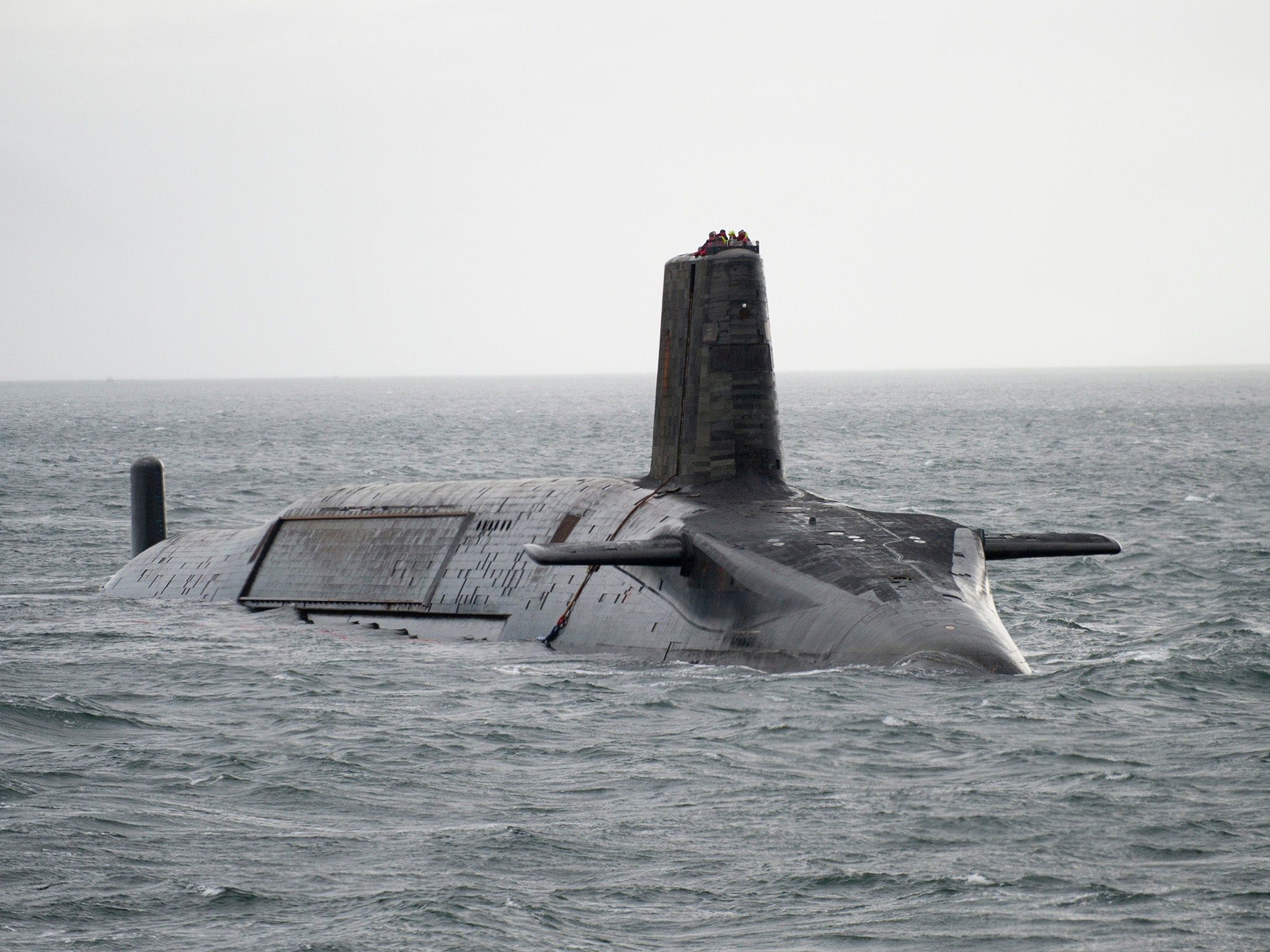Your support helps us to tell the story
From reproductive rights to climate change to Big Tech, The Independent is on the ground when the story is developing. Whether it's investigating the financials of Elon Musk's pro-Trump PAC or producing our latest documentary, 'The A Word', which shines a light on the American women fighting for reproductive rights, we know how important it is to parse out the facts from the messaging.
At such a critical moment in US history, we need reporters on the ground. Your donation allows us to keep sending journalists to speak to both sides of the story.
The Independent is trusted by Americans across the entire political spectrum. And unlike many other quality news outlets, we choose not to lock Americans out of our reporting and analysis with paywalls. We believe quality journalism should be available to everyone, paid for by those who can afford it.
Your support makes all the difference.The Trident nuclear weapons system could be vulnerable to cyber attack, a former Labour defence secretary has warned.
Lord (Des) Browne told the BBC there was currently “no guarantee” that the submarine-based nuclear missiles were actually an effective deterrent.
He told the Guardian newspaper that the Government needed to ensure that potential “weak spots” in the system were protected against “a high-tier cyber threat”.
“If they are unable to [secure the weapons from cyber attack] then there is no guarantee that we will have a reliable deterrent or the Prime Minister will be able to use this system when he needs to reach for it, he added.
Lord Browne was a Labour MP from 1997 until 2010. He served as Secretary of State for Defence between 2006 and 2008.
The former minister’s comments come after a decision by Labour’s frontbench to abstain on a symbolic House of Commons motion by the SNP on scrapping Trident.
The party’s leadership says the debate, called by the nationalists, is a political stunt.
It is likely to highlight divisions within Labour on the issue, with MPs from the party’s right reportedly preparing to defy their leader and vote to keep the nuclear weapons.

David Cameron has confirmed that Parliament will vote on renewal of the weapon.
The Strategic Defence and Security Review revealed that the estimated official price tag of the weapon has risen from £25bn to £31bn – with a £10bn contingency fund available.
Other estimates by the Reuters news agency based on official figures have been as high as £167bn taking into account the lifetime cost of the system.
The system is opposed by Jeremy Corbyn, but it is still official Labour policy to renew it when its lifespan runs out. Scottish Labour has however voted to oppose the weapon's renewal.
The Government says the weapon is an effective deterrent against attack.
Subscribe to Independent Premium to bookmark this article
Want to bookmark your favourite articles and stories to read or reference later? Start your Independent Premium subscription today.

Join our commenting forum
Join thought-provoking conversations, follow other Independent readers and see their replies
Comments